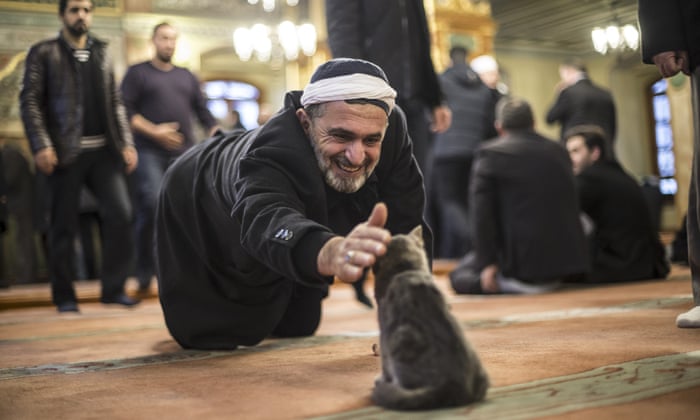I lived in Minneapolis for two winters. At 3.3 million, its metro population is greater than the entire state of Mississippi where I spent my first 36-years, and of Eugene, Oregon where I've lived for 32-years. Eugene and Minneapolis are alike in that their populace is educated, secular, affluent, and Democratic (or, as Trump would say, strongly Democrat). By contrast, Mississippi is staunchly Christian, strongly Republican and leads the nation in poverty, ignorance, obesity, oppression, and early death.
My mother condescended toward black people, but my father treated them well, as did I considering my immaturity and ignorance. Although he went to an all black school, my best friend in high school was a black boy named Jerry Kelly. When my white friends and I went camping one weekend, Jerry went too, and when my father and I went camping 400-miles from home, Jerry went too. The South had an unwritten code about what a white person could do with black people and what he or she couldn't. For example, when I was in high school, my white friends would simply walk in on me without knocking, but Jerry wouldn't have dreamed of doing such a thing, and when my white friends and I drove around town drinking, Jerry wasn't invited.
The only bad moment, racially speaking, that I had with Jerry occurred when we were running my father's 115 mile paper route. Most days, my father and I ran the route together, him driving and me throwing papers, but some days, we would hire Jerry to replace one of us. On this particular day, I told Jerry to go into a cafe to collect for the paper. He said he didn't want to go because the cafe was run by white people (black people couldn't enter white-run cafes, although some such businesses had side windows for their black patrons). Being infinitely more naive than Jerry, I assured him that there would be no problem since he wasn't there to order. So, in he went, and, seconds later, out he came, closely followed by a raging white woman.
Much of my prejudice toward black people didn't come from living in Mississippi but in Minnesota where gangs of belligerent black teenagers would stalk downtown streets, daring white pedestrians to remain on the sidewalk. I also encountered groups of loud and aggressive black people on city buses. I came to regard them as hyenas, a perception that returned this week when I watched black mobs looting white-owned stores.
My Mississippi hometown had its last lynching in 1953, when I was four, and a previous lynching in 1928, when my father was in his teens. In the 1928 lynching, a mob took two brothers from the city jail, shooting one, and dragging the other behind a car before hanging his corpse from a tree.
When I was young, I romanticized people who didn't fit society's norms. For example, I sought out the friendship of homosexuals and black people, and I was captivated both by the Freedom Riders and the Weather Underground. Because I valued appearance over substance, I was even drawn to groups that sought one another's annihilation, for example the KKK and the Black Panthers. I also loved snazzy uniforms, and so I favored the looks of Confederate soldiers over the Union, and of the SS over the Allies. Although I felt superior to people who brainlessly hated what their neighbors hated and loved what their neighbors loved, my values were equally shallow and a lot less consistent.
My British and Australian readers know about the murder of George Floyd, but they might not know about a New York City white woman named Amy Cooper who called the police to report that she and her Cocker Spaniel were being physically threatened by a middle-aged black bird watcher who objected to her dog being unleashed in a Central Park area set aside for wildlife.* Once she was on the phone, Ms Cooper worked herself into the appearance of hysteria, all while the black man filmed her performance. After being fired from her $175,000 job with an investment firm, Amy Cooper botched multiple apologies so badly that she finally hired a PR firm. For example, she had sought to minimize her behavior by claiming that, "Words are just words," and "I didn't intend to harm that man in any way," and she even tried to win the public's sympathy by saying, "My entire life is being destroyed right now.” Does the Me Too movement's insistence that women are too pure to frame men ("Believe the Women") include the Amy Coopers of the world, and does it really hold that no black man ever came to a bad end because of a white woman's lies?
Although local bumper stickers laud diversity, Eugene is hardly diverse. Black people and Asians are rare, and Hispanics are too poor--and too afraid of ICE (Immigration and Customs Enforcement)--to engage in politics. Even so, white Eugenians have been out in the thousands (the largest protest reaching 10,000**) protesting the Floyd murder, and they've been at it for more than a week, during which several businesses were vandalized. The spectacle of white crowds in a white city shouting insults at a white police force 2,000 miles from a black man's murder strikes me as impotent, and I even wonder the extent to which the size of the protests (not just in Eugene, but in the nation and the world) has been fueled by hatred for Trump and frustration over Covid lock-downs. Whatever the truth about this, Covid deaths can be expected to mushroom, especially among black people.
*https://www.thedailyworld.com/opinion/commentary-george-floyd-killed-in-minneapolis-is-why-amy-coopers-central-park-call-was-so-repugnant/
**https://www.kezi.com/content/news/Massive-crowd-gathers-for-protest-march-570907911.html




















